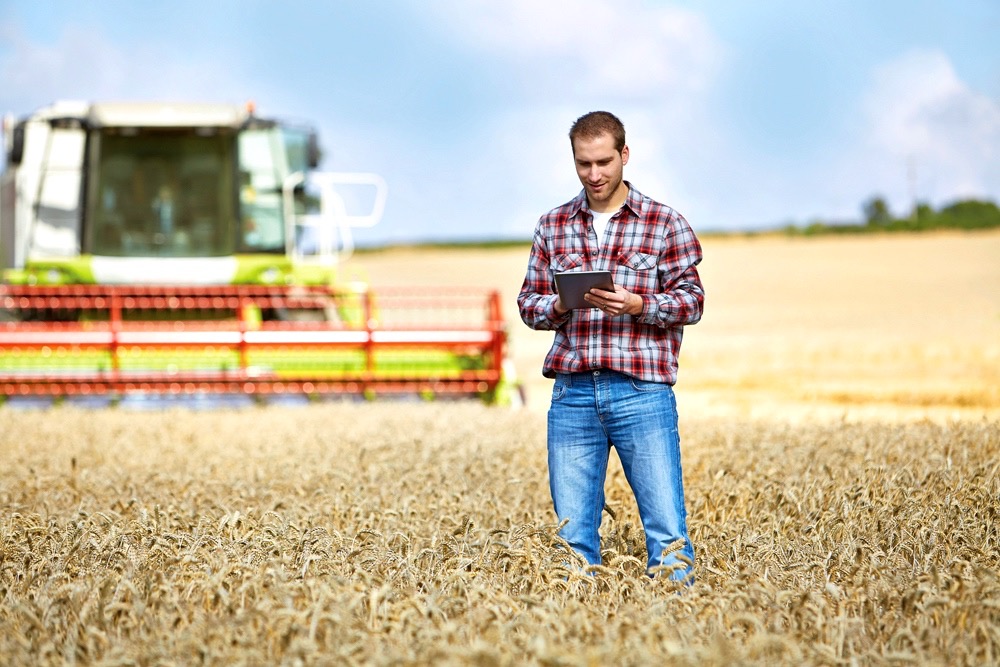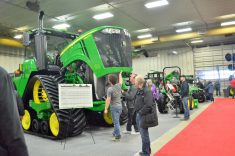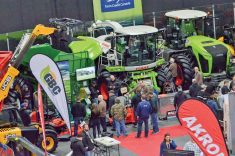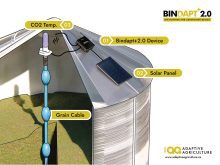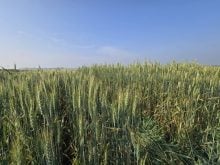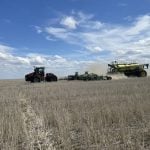A Manitoba software company uses blockchain technology to connect the dots between producer and consumer in the agriculture sector.
TheoryMesh is the brainchild of Manitoba software developer Chris Bunio. He spent 18 years in business development at Microsoft before returning to Winnipeg during the pandemic to launch TheoryMesh. He spoke at the recent Fields on Wheels conference at the University of Manitoba.
“TheoryMesh is attempting to bring the agriculture and food supply chains together,” says Bunio. “When you buy a food product in the store, if you don’t understand what’s happening behind the scenes, you see the package and the label and that’s your view of what’s happening with food. But it’s a little bit more complex than that. There are a lot of gaps in this process.”
Read Also
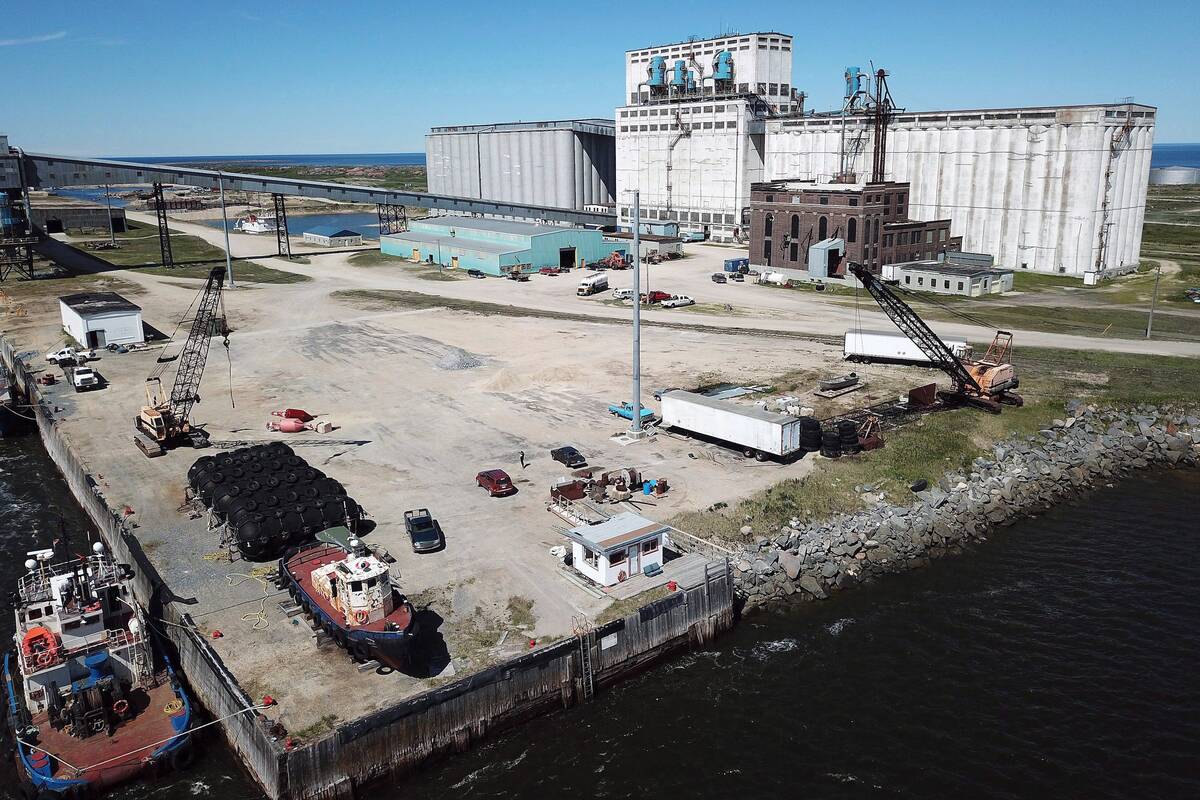
Air, land and sea join forces as Manitoba launches Arctic trade corridor plans
Manitoba wants to take its Arctic trade routes to the big leagues. The Port of Churchill, CentrePort Canada and Winnipeg airport have all raised their hands to help it happen.
As a gluten allergy sufferer, Bunio knows a thing or two about those gaps.
“Gluten finds its way into so many different things and as you start sort of digging and trying to understand what is actually a safe food product, you learn very quickly that it’s difficult to get that information across the supply chain.”
This disconnect is happening during an explosion of farm and food data available through new technology.
“Today, any farmer that has a John Deere tractor is generating billions of data points continuously through the use of that machine,” says Bunio. “And, as we look at different farm management tools, sensors, and new ways to use satellite imagery, the amount of information at that field level is growing all the time.”
Understanding blockchain
The need is there and the data is there but it doesn’t follow the product through the supply chain. To increase traceability across the food supply chain, blockchain technology is the answer, says Bunio.
When most people think about blockchain, cryptocurrencies like Bitcoin come to mind. While recent market crashes and the FTX scandal may have temporarily soured public opinion on cryptocurrencies, the underlying blockchain technology has potential to streamline processes and increase transparency in many different industries, and it is attracting a lot of attention.
A blockchain is a type of database used to record and store digital transactions. Each block contains a unique code that connects it to the block before and after it. A block would contain transaction records, and once a block is added to the chain, it cannot be altered.
“So it’s essentially a digital ledger and because you can’t go back and alter the data that’s been put on a blockchain, it becomes a permanent record of what’s happened,” says Bunio.
That simple explanation is what blockchain is all about. The association with cryptocurrencies makes people think it is complicated but blockchain can be applied to any transactions.
In terms of how it might work in agriculture, imagine a farmer grows a crop of potatoes and sells them to a wholesaler. The wholesaler then sells the potatoes to a retailer, who sells them to consumers.
Traditionally, this supply chain might involve paperwork and manual record-keeping, which can be time-consuming and prone to errors. With blockchain technology, the process could be automated and tracked in a secure and transparent way.
A farmer could use a blockchain platform to create a digital record of their crop as it is being grown. This record could include information about the type of potatoes, where they were grown and any other relevant details.
When the potatoes are sold to the wholesaler, the transaction could be recorded on the blockchain, creating a permanent and unalterable record of the sale. The wholesaler could do the same when they sell the potatoes to the retailer and so on down the chain.
This would create a complete and transparent record of the movement of the potatoes from farm to consumer, which could be used to verify the origin and quality of the produce and ensure all parties in the supply chain are paid fairly.
A key feature of a blockchain is that it is decentralized, which means it is not controlled by a single authority or organization. Instead, it is maintained by a network of computers that work together to validate and record transactions. This structure makes it difficult for transactions to be altered or tampered with.
“It opens the door for a more collaborative business process while keeping that permanence and immutability on the data side as well,” says Bunio.
Emerging technologies associated with blockchain are tokenized assets, which are digital representations of an asset, like a bushel of wheat, that’s stored on the blockchain.
“We’re also involved in some pilots that are looking at tokenizing data for livestock,” he says. “I think we’ll see more and more scenarios like that come up over time.”
Sustainability and supply chain
Traceability in food products is moving beyond the spheres of food quality and safety and into sustainability. To illustrate how far this has come, Bunio points out that within 18 to 24 months, companies selling products into the European Union must be able to prove there was no deforestation on land in their supply chain.
The increasing importance of sustainability is also having an impact on TheoryMesh’s bottom line. As a software company, its primary target market is food processors.
“Because we help them handle food safety, food tracking, traceability within their own operations, we typically help them save money, which more than offsets the cost of the software,” Bunio says.
“Then, as we reconnect them in their supply chain, they have the opportunity to sell their product at a higher value.”
That premium can sometimes be as high as 20 per cent on products certified for sustainability.




